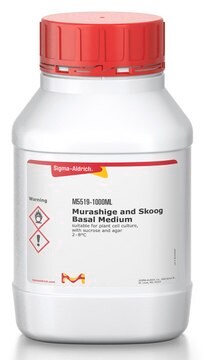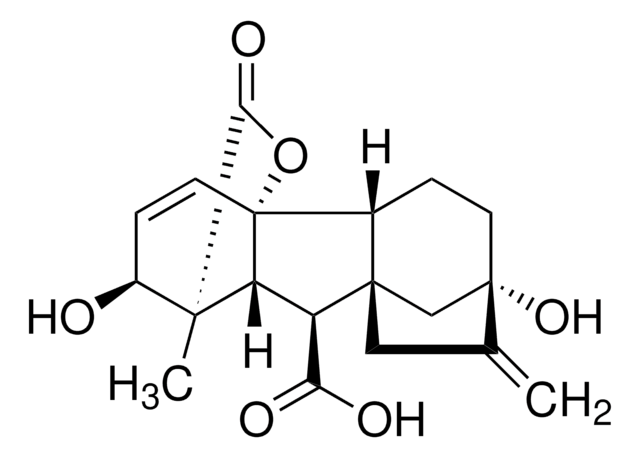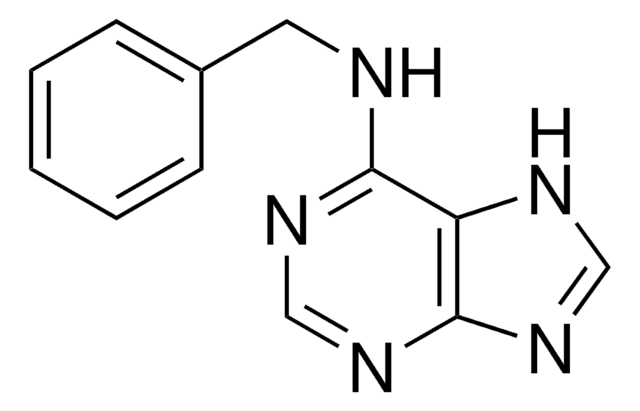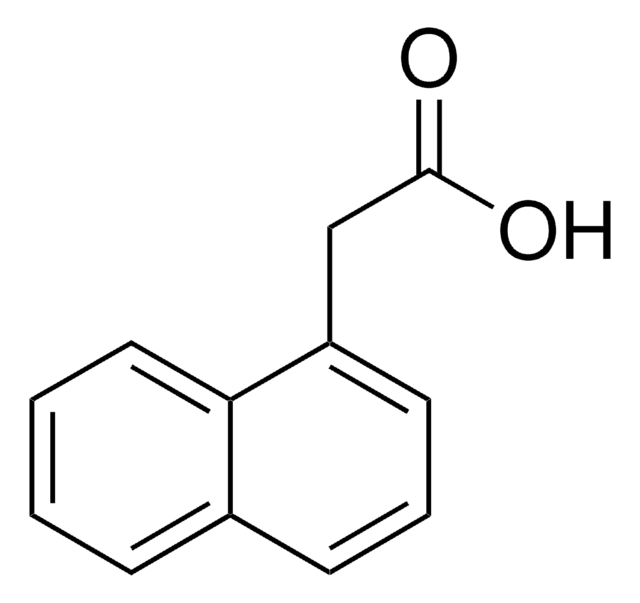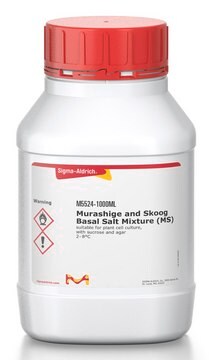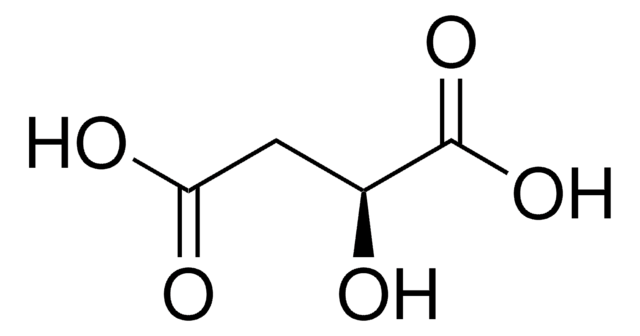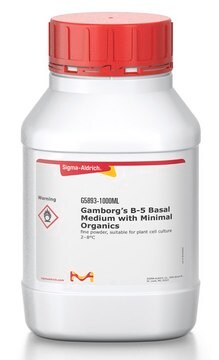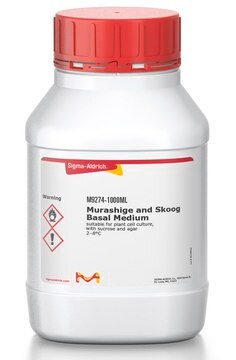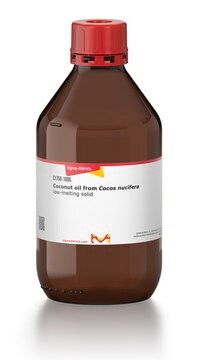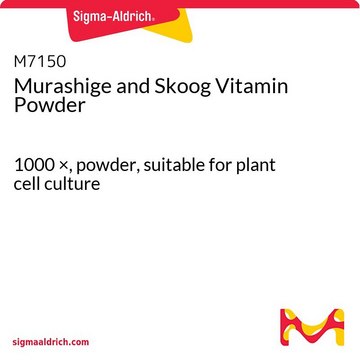C5915
Coconut water
suitable for plant cell culture
Sinonimo/i:
Coconut beverage, Coconut extract, Coconut juice
Autenticatiper visualizzare i prezzi riservati alla tua organizzazione & contrattuali
About This Item
Codice UNSPSC:
10171502
NACRES:
NA.72
Prodotti consigliati
Sterilità
sterile-filtered
Stato
solution
tecniche
cell culture | plant: suitable
applicazioni
agriculture
Condizioni di spedizione
dry ice
Temperatura di conservazione
−20°C
Applicazioni
Coconut water is used as a supplement with plant cell culture media such as Murashige & Skoog media.
Use at a concentration of 5-20% (v/v)
Altre note
Coconut water has been shown to stimulate shoot proliferation in many species of plants. It is prepared from selected coconuts and processed to remove most of the protein. The product is then filter sterilized and frozen prior to shipment. Remaining protein levels in the water may vary from one lot to the next and may result in precipitate when the product is frozen. This precipitation should not effect the growth of the plant tissue. The precipitate can be removed by filtering or by allowing it to settle to the bottom of the bottle and then decanting. Coconut water can be divided into smaller aliquots, corresponding to your standard medium batch size, and refrozen until needed. Coconut water should be used at a concentration of 5-20% (v/v).
Nota sulla preparazione
Material is deproteinized
Codice della classe di stoccaggio
10 - Combustible liquids
Classe di pericolosità dell'acqua (WGK)
WGK 3
Punto d’infiammabilità (°F)
Not applicable
Punto d’infiammabilità (°C)
Not applicable
Dispositivi di protezione individuale
Eyeshields, Gloves
Scegli una delle versioni più recenti:
Possiedi già questo prodotto?
I documenti relativi ai prodotti acquistati recentemente sono disponibili nell’Archivio dei documenti.
I clienti hanno visto anche
Porntip Wongkaew et al.
Plant cell reports, 23(6), 426-434 (2004-08-17)
Sugarcane white leaf (SCWL)-diseased sugarcane plants collected from Udornthani Province, in north-eastern Thailand, were the source for tissue culture experiments. Explants from axillary buds, meristem tips, and leaves grew optimally in Murashige-Skoog medium containing 0.5 mg/l alpha-naphthaleneacetic acid, 0.5 mg/l
K P Martin et al.
Indian journal of experimental biology, 43(3), 280-285 (2005-04-09)
Large-scale in vitro propagation protocol for Dendrobium hybrids Sonia 17 and 28, two highly prized commercial cut flower cultivars through shoot multiplication using flower stalk node explants and protocorm-like bodies (PLBs) formation was accomplished. Both hybrids did not exhibit significant
Sungkumlong et al.
Indian journal of experimental biology, 46(4), 243-248 (2008-06-03)
In vitro mass production of C. suaveolens (Lindl.) Hook, an endangered orchid with its snowy white flowers having horticultural potential was accomplished through immature seed culture, and subsequent plant regeneration. The developmental stage of the immature seeds and nutrient media
Suvi T Häkkinen et al.
Plant cell reports, 39(12), 1655-1668 (2020-09-07)
Sustainability and safety aspects of plant cell cultures as food are presented. Applicability of dairy side streams as carbon source and use of natural growth enhancers in cultivation are shown. Biotechnologically produced cellular products are currently emerging to replace and
Protocolli
Preparation from Packaged Powder, Preparation from Basal Salt Solutions, Banana Powder Preparation and Use, Coconut Water Preparation and Use
Il team dei nostri ricercatori vanta grande esperienza in tutte le aree della ricerca quali Life Science, scienza dei materiali, sintesi chimica, cromatografia, discipline analitiche, ecc..
Contatta l'Assistenza Tecnica.